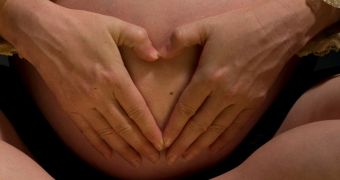In a new study, experts demonstrated that newborns whose mothers still suffered from postpartum depression months after giving birth were most likely to be at an increased risk of displaying symptoms associated with the condition themselves.
New mothers are very likely to experience depression for a few weeks after giving birth, but normally the situation is resolved shortly. However, in some cases, mothers remain depressed for prolonged periods of time.
Experts say that this type of behavior affects their children regardless of their small age. Profound or prolonged postpartum depression was found to influence children and teens' risk of depression until the age of 16, PsychCentral reports.
The work was authored by professor Lynne Murray, PhD, who is based at the University of Reading School of Psychology & Clinical Language Sciences. Details of the work appear in the latest issue of the Journal of the American Academy of Child and Adolescent Psychiatry (JAACAP).
According to the team, this is the first time ever that scientists demonstrated the adverse effects of maternal postpartum depression on kids' depression risks later in life. Experts had no idea that the correlation could be founded so early in infancy.
“The substantially raised risk for depression among offspring of postnatally depressed mothers underlines the importance of screening for PND and of delivering early interventions,” the team writes in its new journal entry.
The investigation was carried out on about 100 mothers, of which 58 had been diagnosed with postpartum depression (PND). The age of test subjects ranged from 18 and 42, as experts wanted to get the best possible view of the connection.
At ages 5 and 8, the children in the study tended to display low levels of ego and resilience, as well as a poor relationship with their mothers. These signs appeared a few years before the kids themselves began displaying symptoms related to depression.
The team underlines that these findings should convince mothers to try and shake off their depression, and to seek treatment for doing so whenever necessary. This may lead to improved outcomes of their relationships with their kids, and to lower risks of the latter developing depression.

 14 DAY TRIAL //
14 DAY TRIAL //